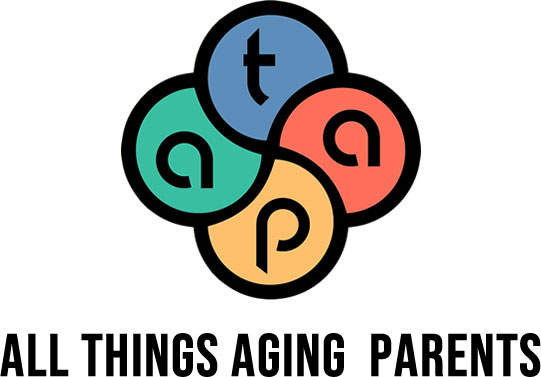Note: This is an overview of insurance options, and is by no means comprehensive. We recommend that you talk to a competent, licensed insurance agent, preferably an independent agent who sells policies from multiple companies rather than a single insurer, so you will have broader options and won’t be sold only on the product they are pushing.
Long term care insurance: Long term care insurance is one way to finance your parent’s needs as they age, but this is one option that must be planned well in advance. Usually, by the time a person needs this type of coverage, they will not qualify to purchase it. The idea of long term care insurance is to provide services for their health or personal care needs when they can no longer perform everyday tasks on their own. This includes the “Activities of Daily Living” (or ADL's), not necessarily medical care.
Regular insurance, including Medicare, won’t cover long term care. Long term care insurance is beneficial when the policy owner has a chronic medical condition, disability, or cognitive disorder, such as Alzheimer’s or dementia. Under most policies the owner becomes eligible when they cannot perform 2 of the 6 ADL's or suffer from a cognitive disorder. Most policies will pay for care in-home, or at an assisted living or nursing home facility, or at an adult day care. It also covers custodial care, which includes supervision and help around the house. Under many policies, the owner has to pay out-of-pocket for all care for the first few months until benefits begin.
The cost of long term care insurance depends on a number of factors: age and health, gender, marital status, insurance company, and how much coverage you want. Policies usually cap the amount they will pay per day and through the course of the owner’s lifetime. Another consideration is if the policy will be purchased for one or both spouses. You should try not to spend more than 7% of your income on long term care insurance, or even better, 7% of your anticipated retirement income (since that will be your income source for most of the time you pay premiums).


A few up-and-coming options are becoming available because of the high cost of traditional long term care insurance. Among these is a short term care policy that covers 360 days of care at home or in a facility. Premiums are far lower and there are not as many hurdles to cross in qualifying for the insurance. If you spend less than the daily benefit, some policies will allow you to carry that amount over for longer than the coverage period. However, a short term care policy may not cover as wide range of services as long term care. Another option is a hybrid long term care policy which combines permanent (whole life) life insurance with long term care insurance. With a hybrid policy, a policyholder would withdraw funds from the policy when needed for long-term care, and the insurance company pays for care when those funds run out. And if the policyholder dies without having needed expensive long-term care, the heirs receive a death benefit — therefore the premiums paid into the policy are not “wasted.”
Other Life Insurance Options: When faced by the daunting prospect of a terminal or debilitating illness, people begin looking to non-traditional means of financing medical costs and on-going care. Some older adults have life insurance policies they no longer want or need. Rather than letting these policies lapse by not paying premiums, they might consider making a life settlement (sometimes known as a senior settlement). Life settlements allow policyholders over 65 to sell their life insurance policy to an investor company for cash. The investor pays more than the cash value of the policy, but less than the policy’s death benefit. The investor then becomes the beneficiary of the policy and pays the premium on the policy, receiving the death benefit when the insured person dies. According to a US Government Accountability Office (GAO) 2010 study, US policy owners received 4-8 times more than the policy cash surrender values from life settlements from 2006-2009. Life settlement companies have their own criteria, and many only consider policies with a face value of $250,000 or more.
A viatical settlement is similar to a life settlement, except that it is only available if a) the insured has been diagnosed with a terminal illness and is expected to die within 2 years, b) (s)he is not able to perform at least two ADL's without considerable help for at least 90 days, or c) (s)he requires supervision to protect them due to a severe cognitive disorder. Each of these criteria must be certified by a licensed health professional. As with a life settlement, the policy is purchased by an investor company who then pays the premiums and becomes the beneficiary, collecting the death benefit upon the death of the insured.
Some life insurance policies have riders (or attachments) written into them that pay a portion of the policy’s proceeds if certain specified events occur before the policy owner’s death. These events include terminal illness, a debilitating condition (such as Alzheimer’s or dementia), or the need for long term care. This policy is called accelerated benefits or living benefits. These are usually only available on certain policies, and limit the benefits to 50-80% of the face value of the policy. The policy owner must continue to pay premiums, and the remainder of the policy is paid out to the beneficiary (as a death benefit) upon the death of the insured.
Money from a life settlement, viatical settlement, or accelerated benefit may be used for medical bills, home health care, living expenses, or any other purpose the insured person has in mind, even if (s)he wants to use it to sail around the world.
Resources:
- https://www.nerdwallet.com/blog/insurance/long-term-care-insurance/
- https://www.aarp.org/caregiving/financial-legal/info-2018/long-term-care-insurance-fd.html
- https://www.consumerreports.org/long-term-care-insurance/long-term-care-insurance-gets-a-makeover/
- https://www.investopedia.com/insurance/paying-longterm-care-how-its-changing/
- https://www.aginginplace.org/a-complete-guide-to-senior-life-settlements/
- https://www.investopedia.com/terms/a/accelerated-benefits.asp



















